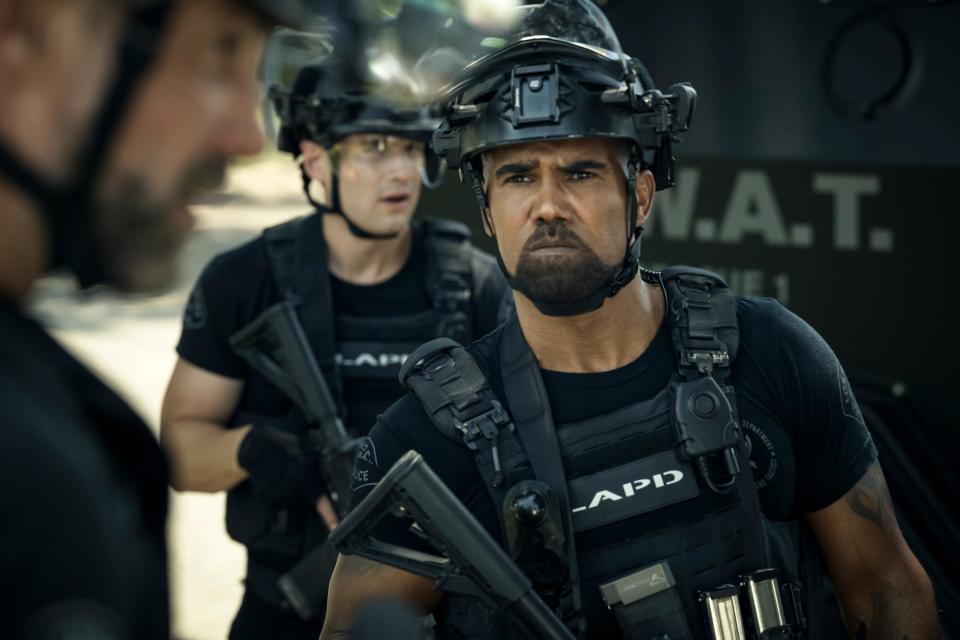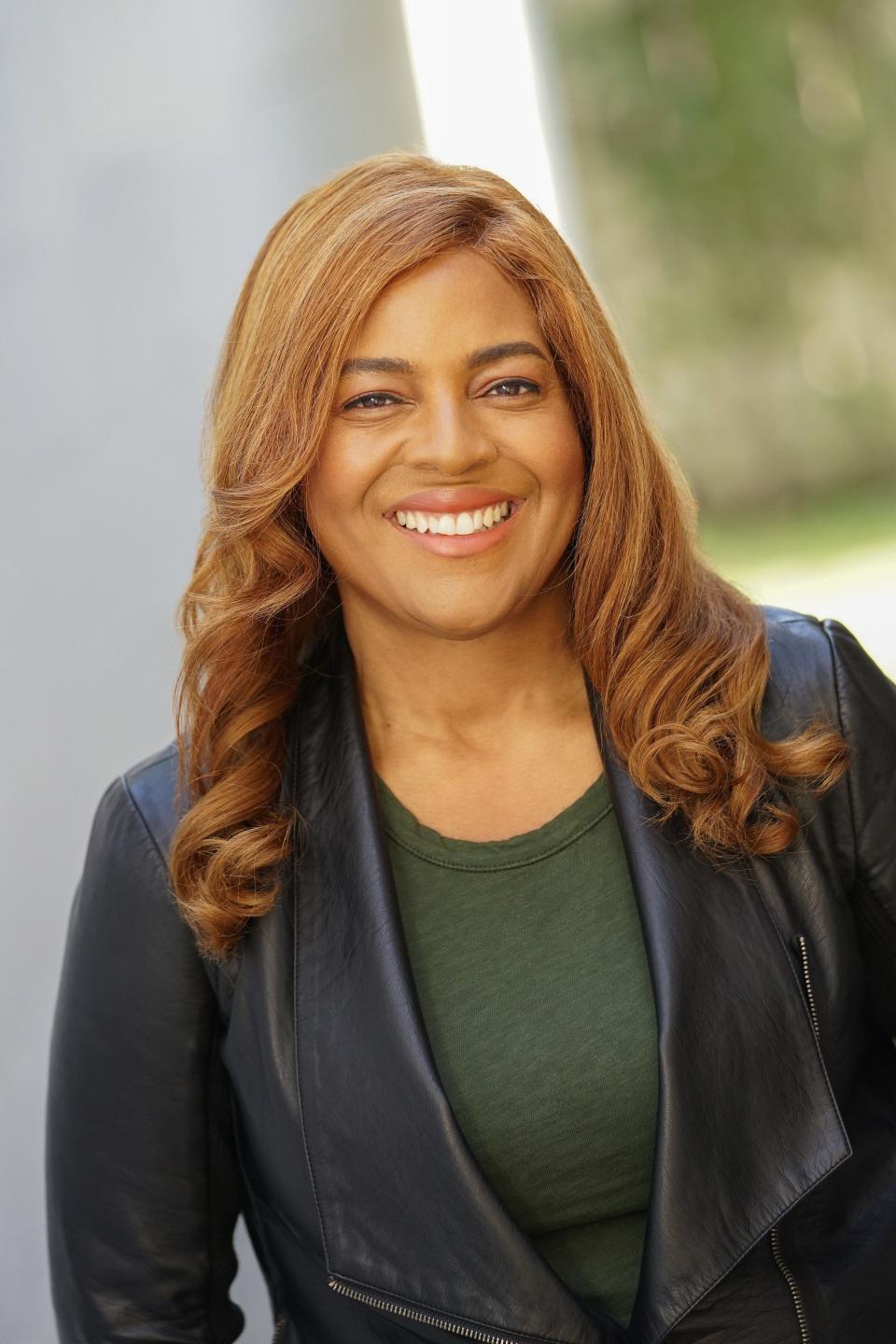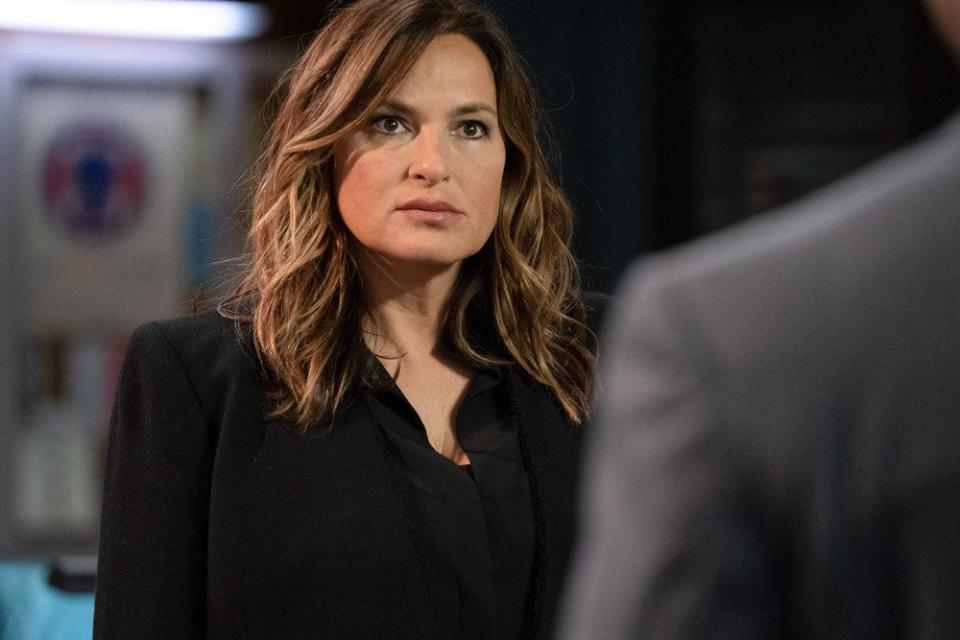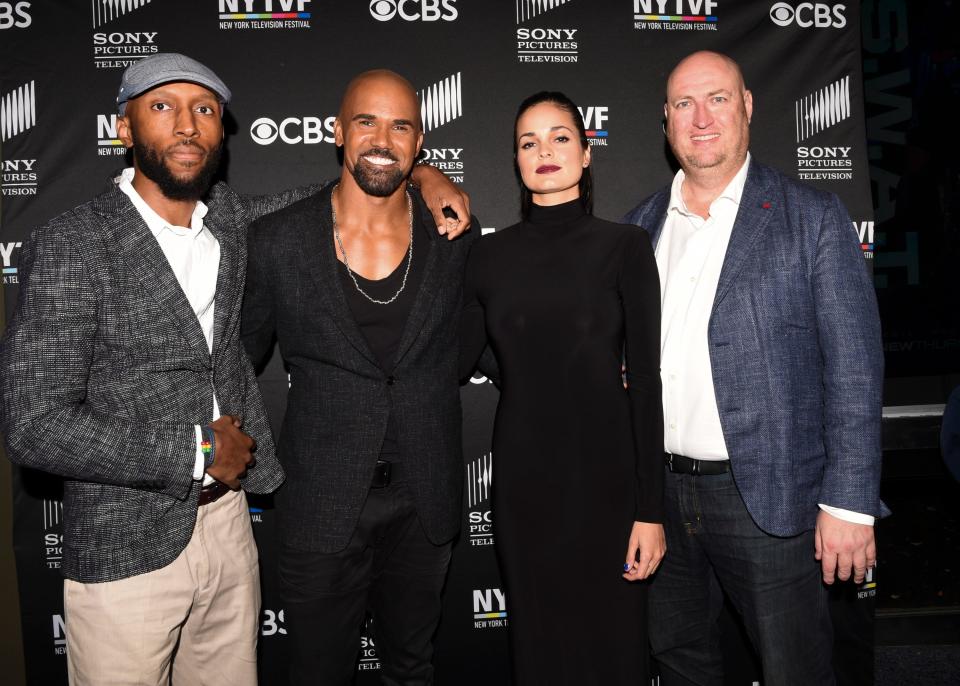TV has to 'walk the walk': How cop shows are handling racial justice issues after a summer of protest
For 20 years, a typical episode of "Law & Order" was clear cut: Someone finds a body, the cops investigate and arrest the killer, the prosecutors argue their case and almost always put the bad guy away. Everybody eats Chinese food.
But that simple formula, repeated in dozens of police and lawyer dramas, wasn't so simple for everyone. For decades, the suspects often have been people of color and law enforcement protagonists were depicted as good guys with wide leeway to ignore people's rights. The transgressions were accepted by viewers who usually knew the accused were guilty. But that awareness isn't available in real life.
The killings last year of George Floyd, Breonna Taylor and other unarmed Black people by police opened the eyes of millions as it confirmed a reality known by those on the receiving end of law enforcement mistreatment and brutality. The images clashed with traditional depictions on TV, part of an entertainment industry long criticized for racism and avoiding controversy.
But the indelible image of a Minneapolis police officer kneeling on Floyd’s neck for nearly nine minutes was too much for too many, including Shemar Moore, the star of CBS drama “S.W.A.T.,” who called a meeting of the show’s producers, cast and executives from Sony, which produces the series.
Moore: Protests 'changed the game for me'
"When George Floyd died, it changed the game for me,” says Moore, who plays Sgt. Daniel “Hondo” Harrelson. At the meeting, “I said, 'There’s this divide, this debate, this confusion. There’s an anxiety between civilians and police.' I was like, ‘We’ve got to talk about it.’ ”
The script for this season's premiere, an episode delayed from last spring due to the COVID-19 pandemic, was initially designed to reflect the progress in police-community relations over the decade, but it was reworked in tone and content to reflect current events.
“So, we spoke about Breonna Taylor, George Floyd, Ahmaud Aubery and others through my character because I’m a Black man and I’m Hondo and it was a perfect platform for us to discuss it,” says Moore, who adds that the show will continue to address issues arising from the summer’s protests. "I know anyone of color that's on television that has any influence, colleagues that I know, it's a must to take on topics like that."
Police misconduct and related issues raised in the summer's Black Lives Matter protests spawned reflection throughout television, where cop shows are an iconic programming staple.
"I think we all woke up to the realization that we, in the television business and the movie business, have been part of the problem because we have for so long showed cops doing bad things for the right reasons, and and that bleeds over to real life," says Brian Morewitz, ABC's senior vice president of drama development. "To watch what happened to George Floyd, it is impossible not to want to effect change."
In recent years, some dramas have made incremental improvements, including making their crimefighters more diverse, but 2020's events led to robust pronouncements about faster, more comprehensive efforts to expand representation and better reflect real life. So far, there's been more talk – including internal conversations and consultations with outside experts – than actual progress. However, more time is needed to determine whether there is lasting change.

Broader perspectives on policing
Viewers don't get a broad enough depiction of policing, says April Reign, a racial justice advocate who wants shows to consult with voices from the community, including those who have been incarcerated, to get a broader perspective. (ABC's "For Life" focuses on a wrongly convicted man who proves his innocence.)
"We as entertainment consumers take a lot of our thoughts on particular issues, including crime and punishment, from TV," she says. "My concern is there's not as much nuance as there needs to be."
At the height of the summer protests and public outcry, two prominent reality series, Paramount's "Cops" and A&E's "Live PD," which have long attracted audiences highlighting police officers' confrontations with suspects, were canceled. Craig Gore, a writer on NBC's upcoming "Law & Order: Special Victims Unit" spinoff, was fired for posting threats on social media to "light up" looters. Some TV critics called for canceling cop shows outright.
More: Amid George Floyd protests, is it time for cop TV shows to be canceled for good?
That won't happen, thanks to the continuing popularity and profitability of the law-and-order genre. "NCIS," "FBI" and "Blue Bloods" are among the highest-rated series on TV. "Chicago" first-responder shows ("Fire," "P.D." and "Med" from "SVU" producer Dick Wolf) fill a whole night of programming on NBC.
The genre has a stronger hold on broadcast TV, but cable and streaming precincts are represented by Amazon's "Bosch," Netflix's "Lucifer," Showtime's "City on a Hill" and FX's "Fargo."
Due to the COVID-19 pandemic, network shows have returned later than usual, with many of those that depict police officers or the criminal justice system searching for the best way to acknowledge the national conversation about race and policing.

How police shows have adjusted
Some, including "The Rookie," CBS' "NCIS: Los Angeles" and Fox's "9-1-1," are consulting with outside groups on policing and racial justice issues. NBC's "Brooklyn Nine-Nine" scrapped the first four scripts of its upcoming eighth season in the wake of racial justice protests, and star Andy Samberg says the comedy will address police brutality and systemic racism when it returns this spring. However, not all series have made major changes or included Black Lives Matter as a major plot point.
More: Andy Samberg slams critics of Oscar diversity rules, talks 'Brooklyn Nine-Nine' and police brutality
Adjustments are evident in new episodes of shows that premiered starting in the fall:
"SVU," the NBC institution famed for ripping from the headlines, opened Season 22 by reworking the real-life viral story of a white woman's racist confrontation with a Black Central Park bird-watcher into a story of Captain Olivia Benson (Mariska Hargitay) and partner Fin Tutuola (Ice-T) being accused of racial bias after wrongly arresting a Black man in the park.
In its third season premiere, "The Rookie" weaved in references to the privilege afforded white suspects and the responsibility of internal affairs units, which are designed to help maintain high standards of departmental behavior but are traditionally disparaged in TV and film.
CBS' "Blue Bloods," one of the more traditional and conservative prime-time shows in the genre, opened its season with a clash between Police Commissioner Frank Reagan (Tom Selleck), the patriarch of a white family with deep NYPD ties, and the Black speaker of the City Council (Whoopi Goldberg) after she complains about police misconduct on a radio show.
CBS' "All Rise" dived headfirst into the issue in its Season 2 premiere, with its lead character, Los Angeles judge Lola Carmichael (Simone Missick), intervening in an argument between a white sheriff's deputy and a Black teenage girl during a racial justice protest. The sheriff handcuffs Carmichael, even though she identifies herself as a judge, and she isn't released until her friend, white prosecutor Mark Callan (Wilson Bethel), vouches for her. Later at home, she cries in pain, a mix of rage, humiliation and exhaustion.

"We placed her in a position where – being an African American female judge – what would it look like for her trying to defend someone and then (having the deputy) assuming a certain thing about her without allowing her to explain herself," executive producer Dee Harris-Lawrence says.
What really hurts Carmichael is the reaction of her friend, who asks the judge what she did to get detained, rather than questioning the officer's action. Eventually, they talk.
"Mark and Lola can have these uncomfortable conversations that we've been talking about having" as a society, Harris-Lawrence says. "It was important for us to show."

More: Will the demise of police reality TV usher in an era of change?
Critics have pointed out that shows also need more nuanced perspectives in a medium where, from 1993 to 2005 on ABC's acclaimed "NYPD Blue," Andy Sipowicz (Dennis Franz) often was admired for riding roughshod over police procedures in pursuit of a "skell."
"Rookie" addressed the normalization of improper police behavior in January's season premiere, when Sergeant Wade Grey (Richard T. Jones) condemns "noble cause corruption," an ends-justify-the-means approach in which officers skirt law and procedure to catch bad guys.
"The Rookie" scene "makes it very clear that the behavior that was happening wasn't something to be celebrated," says Arisha Hatch of advocacy organization Color of Change, which identifies itself as the nation’s largest online racial justice organization and is consulting on the show this season.
"We're not asking for completely positive portrayals of Black people or completely negative portrayals of police officers," she says. "We're looking for a more accurate conversation about policing in our communities."
In previous seasons, "The Rookie" examined unfairness in the criminal justice system, but the summer's events forced a harder look at law-enforcement excesses, executive producer Alexi Hawley says.
Last season, "It felt like the aspirational version of the show, where we really tried to show cops doing the job the right way," Hawley says. "But, it felt like that version of policing was not the version that a lot of people were seeing in their day-to-day life. We had a responsibility to go deeper into the problems without losing what made our show our show."
The show recently introduced an officer who exhibits racist behavior and blames police misconduct on "a few bad apples," a deflection often employed to avoid institutional self-examination. As another officer, series regular Tim Bradford (Eric Winter), learns more about the colleague's actions, he reconsiders his past silence regarding bigotry.
Casting can make a difference
Only two of seven "Rookie" series regulars are white men, including Nathan Fillion in the title role, but the main police characters in other shows, including "Blue Bloods" and "Chicago P.D.," are primarily white.
Casting decisions by themselves can make a big difference, says Titus Makin, who plays Officer Jackson West on "The Rookie."
"I've yearned to see what it looked like for cops to deal with cops, for a young cop to deal with an old cop, for Black cops to deal with Black cops," he says.
Besides continuing a commitment to inclusive casting and moving to increase representation among writers and producers, ABC is broadening storylines to reflect a world with plenty of moral gray, says Morewitz..
"It's up to us to try to be a little bit more creative about the way that we end these episodes, the way that the escalation happens. Does it always have to get to a violent place where the cops get into an altercation with someone who they are concerned about? Is there a different way to handle policing?" he says.
Freelance film and TV journalist Candice Frederick is concerned that a commitment to change could fade with time, but she sees promise in the “SVU” premiere.
“That they chose to center (the accusation of bias) on its beloved protagonist, Olivia Benson – as well as a Black male officer (Ice-T) – was crucial to encouraging its more conservative (viewers) to do some self-reflecting of their own,” she says. “I did like that the episode showed that Benson wasn't quick to come to terms with her own biases, which is true to reality.”

(Universal Television and a spokeswoman for Dick Wolf declined comment about potential changes in his shows.)
"S.W.A.T," inspired by the 1970s action drama, has tried to reflect the diversity of Los Angeles since it premiered in 2017. Moore's Hondo is a Black man balancing his commitment to the police and his family and neighbors in South Los Angeles, where many, including his father, mistrust law enforcement.
"We had a unique advantage in that our show is built for a lot of the challenges that we've seen in 2020," says executive producer Aaron Rahsaan Thomas, who wrote about his rare vantage point as a Black man writing police shows in an insightful Vanity Fair essay.
The cultural conversation has encouraged "S.W.A.T." writers to take a more sophisticated approach to racial justice issues, Thomas says. "I think our audiences are in a place now to have a more intelligent conversation."
More: Breonna Taylor's mom ran a full-page ad calling out Biden. Here's why.
In one episode, Hondo rebuffs a mayoral request to be the face of a police outreach campaign for fear of being used for marketing purposes. But a conversation with a younger Black woman in the unit, who has a different perspective, leads to a promising alternative.

The scene suggests progress, Thomas says. "I can't name one time I ever saw that, watching cop shows as a kid."
Hondo might be similarly skeptical about whether cop shows will evolve. Some significant changes have to be measured over time, including the promise to broaden racial and ethnic representation onscreen and in TV writers' rooms.
"The real answer to that question really won't manifest itself for probably another year or so," Thomas says. "Solutions in the past (have) been mostly window dressing, more faces of color before the camera, not necessarily behind (it), the stories being pretty much the same. We'll have to see if the content becomes more savvy when dealing with these issues. We'll have to see if we walk the walk."
This article originally appeared on USA TODAY: Cop shows and racial justice: How series adapt after protests

